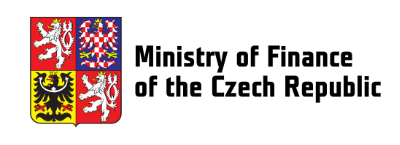Statement of Minister Andrej Babiš before June ECOFIN
On Friday 17 June 2016, the EU finance ministers will discuss one of the largest packages of tax measures to fight avoidance and fraud ever. The package will cover both direct and indirect taxation. The legislative proposal on corporate income tax is one element, the short-term measures to tackle the VAT fraud is the other.
Immense political capital has been invested in the fight against corporates and individuals avoiding paying taxes. I want to fight VAT fraud with the same determination and pace.
The VAT share is twice the share of tax revenues than the corporate income tax. What we loose on VAT is a multiple of what we loose on corporates and individuals: The Commission reminded us that the amount of missing VAT revenues in the EU was euro 165 billion in 2014 and 168 billion in 2015. Indeed, this is several times more than what we could collect if base erosion and profit shifting by corporates (BEPS) was eliminated. To me, these estimates are alarming.
Moreover, the VAT gap is not caused by just avoiding paying taxes. It is caused by a smart crime, an outright fraud. To make things even worse, allegations suggest that money from the VAT fraud is used to finance terrorism.
I agreed to all legislative acts to fight tax avoidance by corporates and individuals that were put on the table in the European Union since February 2014, i. e. the amendment of the Parent-Subsidiary Directive and the amendments of the Directive on Administrative Cooperation in the Field of Taxation (so called DAC2, DAC3 and DAC4).
In the same period, I have been very vocal and consistent on this: We have to put more emphasis on VAT fraud in order to deliver what we are accountable for as finance ministers: public finance management, lowering public deficits and debts - without cutting expenditures on social systems, education or healthcare.
In many ECOFIN meetings, namely in June 2014, October 2014, January 2015 and May 2016, I made it clear that I see the measures against tax fraud in direct and indirect taxation as a package. I expect that a critical progress on this package in June, not only because I was assured by the Dutch president that this is indeed what they want.
I am strongly in favour of the anti-tax avoidance package. However a temporary application of reverse charge as envisaged by the Commission in their own Action Plan must go along with it. Without a legislative proposal, this can never happen. Without this strong link the direct-and-indirect-tax avoidance package would fall apart.
I cannot speak for the other ministers. There are countries that had wished the new regulation of companies’ taxation to have been approved already in May. There are others that had doubts. The Czech Republic would have to change its national laws and introduce completely new instruments to implement ATAD. But fighting tax fraud regardless of its origin is my priority so I am actually one of the ministers who do not object to the content of the ATAD proposal.
In the same vein, I know there are ministers who are opposing the package on the indirect taxation front. I am afraid that their opposition is what could in the end prevent the EU from agreeing on new measures to fight tax fraud, regardless of its origin, in June. This would be a missed opportunity and a collective failure to collect almost 170 billion euro of VAT stolen from us every year.
Since I have become the Finance Minister, I have discussed these issues with a number of Commissioners, including Mr Moscovici and Mr Dombrovskis and with most of my fellow finance ministers. I have put up meetings of groups of finance ministers, I have written many letters, I have made phone-calls. I have organised seminars to allow experts to talk about the technical side of the issue. Many understand what we need to do and why and they are open to let us test a generalised reverse charge mechanism through a pilot scheme. They can see the advantage for everyone in gaining valuable, because empirical data – in contrast to theoretical forecasts.
In VAT, fraudsters move very fast from one sector to another – from mobile phones to sugar to metal scrap to you name it. Experience shows that the only reliable common denominator of missing trader fraud is the high supply value that can bring a substantial gain to fraudsters. We have to focus on the supply value rather than to limit the reverse charge mechanism to any specific sector.
I am aware of the new risks possibly created by the generalised reverse charge system and I am convinced that they are properly addressed. Therefore the Czech Republic has recently introduced an electronic system for filing the VAT ledgers, so called “control statements”. Once VAT returns (together with VAT ledgers) are filed, analytical systems can easily link issued invoices with their recipients. Later this year, the Czech Republic will introduce an online registration of retail sales which will be gradually rolled out to cover all retail transactions (except for specifically exempt low risk vendors). The combination of “an audit by the customer” and sophisticated data analysis will eliminate most of material risks of tax non-compliance at the end of the supply chain. The broader application of the reverse charge mechanism is the third pillar of our tax administration reform to completely eliminate the carousel fraud.
Andrej Babiš
